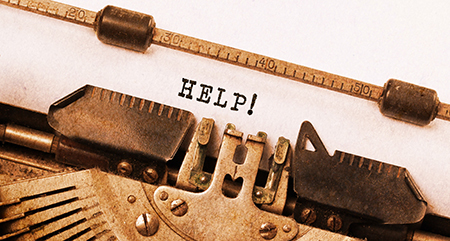The cursor blinks on the page, black on white, a heartbeat pulsing on and on, unceasing.
Eight hundred words — no, that’s not it. Eight hundred perfect words. Eight hundred words wrenched from your heart, sent through your fingertips, judged in the harsh backlight of your computer screen, and second-guessed by your mind. Is “second-guessed” the right word? No, better make it “reconsidered,” “reviewed” or “reevaluated.” Reevaluated by your mind. Reevaluated by your mind? Read it out loud . . . that doesn’t sound right. Second-guessed . . . yes, second-guessed sounds better.

The harsh staccato click of a single key hit repeatedly is the only sound in the room. The screen is blank again and the cursor blinks on the page, black on white, a heartbeat pulsing on and on, unceasing. It doesn’t care what you write, but you’re still searching, still searching for those 800 perfect words.
Where to begin?
Know what the story is really about. You consider this and the cursor blinks in time with the ticking second hand of the kitchen clock, blinks in time with your beating heart, blinks in time with the drumming of your fingertips on the hard wooden tabletop.
Enough. Just keep going.
The lede is the most important part of the story. The buzzing thoughts in your head slip sideways and you’re left with nothing but a blankness so loud it hurts. Just because it’s the lede doesn’t mean you have to write it first, right?
Right.
There are three elements: people, a story, and tension. People — that’s you. A story — that’s this. Tension — that’s the cursor blinking on the page, black on white, a heartbeat pulsing on and on, unceasing. The page is still blank, still waiting.
Appeal to the senses. Your mind reaches out for anything — anything at all — that doesn’t have to do with writing. It drifts to the stained green mug of steaming tea sitting by your elbow, still too hot to drink. It contemplates the soft and waxen fleece of the blanket on your lap. It wonders at the flurry of bright snow outside the window, floating through the air like a dream. It questions the — no! No more distractions. Focus. But it’s hard to focus when you’re stuck with the knowledge that everyone expects you to have something to say and the truth is that you’ve been staring at a blank computer screen with a blank stare and a blank mind and you know you’re running out of time.
Don’t think about that. Focus.
There is value in freshness, surprise, and unpredictability.
Know what to leave out. Don’t mention it’s the night before the assignment is due. Don’t mention it’s the night before the assignment is due.
Write to inform, not impress. But that’s hard to do when you know the perfect words are out there, as close as the tips of your fingers resting on the keyboard. Eight hundred perfect words. You can find them if you think clearly enough, try long enough, push hard enough. Eight hundred perfect words . . . all locked in your head.
And all the while the cursor blinks on the page, black on white, a heartbeat pulsing on and on, unceasing.
It’s never been this difficult before. Usually the words flood out in an unchecked torrent of sentences, paragraphs, and pages — black words on a white page like footprints in freshly fallen snow. There is no hesitation . . . or . . . or . . . feeling of defeat, especially not before you’ve even started to write.
But this time something is different. Maybe it’s the knowledge that this is a class of writers for writers and the stakes are higher. Maybe it’s the knowledge that all you’ve ever wanted to do is write, but with graduation looming over your shoulder, you’re seized with the sudden doubt that maybe you’re just not good at it. Maybe it’s the knowledge that the clock is still ticking and you haven’t yet managed to find one word out of 800.
Or maybe it’s something else entirely. Maybe it’s the way the cursor blinks at you on the page, taunting you with the possibility of perfection. Maybe it’s the way you know that nothing on the paper will ever sound as good as it does in your head.
Writing is hard. Running a marathon is hard. Climbing Mount Everest is hard. Achieving peace in the Middle East is hard. Trying to pull 800 perfect words out of sheer nothingness is impossible.
No, not impossible. You’ve written perfect words before, felt the satisfaction as you’ve read them on the page, felt the rightness of them in your chest.
Eight hundred perfect words. Come on. You can do it. They’re in there somewhere, just waiting to be found.
But where to begin?
The cursor blinks on the page, black on white, a heartbeat pulsing on and on, unceasing.
Where to begin?
Here.
Christina Payne is this magazine’s summer intern.